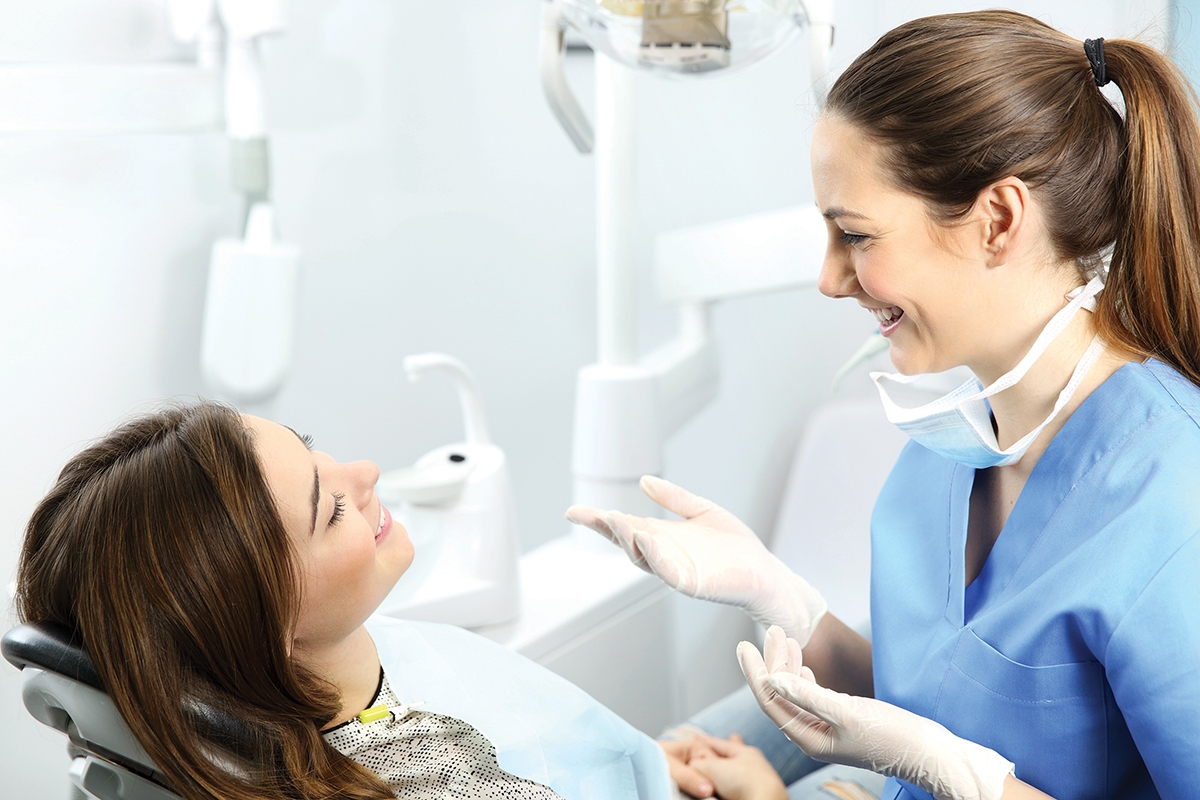Teeth Talk
Dental Questions Patients Fear Asking

Visiting the dentist doesn’t typically rate high on many people’s list of favorite things to do, but oral hygiene and routine dental check-ups are essential to overall health. One of the fears patients have is that they’ll never again have a nice smile, but that’s the greatest reward of most dentists – taking a patient who wants to hide his or her smile on the journey to being proud of it.
Q: If I have neglected my teeth for a long time, what will the dentist think?
A: Embarrassment and fear of procedural pain can prevent people from seeking dental treatment for years. This can result in patients experiencing painful situations such as a tooth breaking or falling out, intense toothaches, or advanced gum disease from the lack of preventive care. Your teeth might be bad now, but by not seeing a dentist, they likely will get worse. Problems may be able to be reversed with treatment, and your dentist can help you prevent future problems. If you haven’t had a routine exam in the last six months, call and schedule your appointment today. Practices utilizing the latest in dental technology should offer you a great experience without pain. Your smile is worth it!
Q: What is good oral hygiene?
A: Good oral hygiene begins with maintaining an oral care routine of brushing and flossing twice a day using dental products that contain fluoride. To help ensure a healthy mouth, you should follow a balanced diet and limit snacks that are high in sugar, avoid tobacco products, and visit the dentist regularly.
The American Dental Association (ADA) recommends that adult patients visit a dentist once or twice per year to have their teeth professionally cleaned and identify any potential problems early. Preventive check-ups are the best way to stay on top of your dental health. Technological advances like laser cavity-detection systems can help identify and treat issues in their earliest stages. Digital X-rays provide instant images and reduce the amount of radiation exposure to patients by 80 percent.
Some conditions such as diabetes or reflux/heartburn can also affect your dental health, as can certain medications and types of chemotherapy. Protect yourself by discussing any concerns with your dentist.
Q: Why are my teeth sensitive?
A: Patients with sensitive teeth may feel pain when they consume items that are hot or cold, sweet, or acidic. Generally, this is caused by thinned tooth enamel which doesn’t protect the tooth pulp or dentin inside from exposure to extreme temperatures. This can result from receding gums, grinding teeth when sleeping, whitening of the teeth, chips or fractures, fillings, and orthodontics. Talk to your dentist about specifics to help ease the sensitivity.
Q: Why do baby teeth matter if they are going to fall out?
A: Baby teeth matter because they pave the way for adult teeth. Children can develop their first cavities by the age of two. The American Academy of Pediatric Dentistry recommends booking your child’s first dental visit once they have their first tooth, or at the latest, by their first birthday. Building healthy dental habits in children can have a long-lasting impact on their adult teeth.
Q: How important is fluoride?
A: Enamel, the hard coating layer of your teeth, is mostly made up of minerals that can soften and decay when exposed to daily acids and bacteria. Using fluorinated dental products like toothpaste and mouthwash, along with fluoride treatments, can help strengthen the enamel on your teeth. Additionally, fluoride helps fight cavities.
Q: I have missing teeth – what are my options?
A: Dental implants are one of the best ways to replace missing or weakened teeth. Most adult patients are good candidates for implants as they can prevent the remaining teeth from moving or loosening as a result of the treatment. Implants are permanent and appear natural, serving as a good alternative to dentures.
Q: What can I do to improve the appearance of my teeth?
A: Advances in cosmetic dental technology give patients multiple alternatives to show off their pearly whites. Porcelain technology is the metal-free aesthetic treatment that provides strength for many years. For those who complain that their teeth are not white enough, there are multiple options to treat patients with varying degrees of tooth darkness and stain … your dentist can help you find the best option for you.
Dr. Edmond Suh
Owner of Supremia Dentistry, located at 1711 S. Main St. in Wake Forest.
- www.supremiadentistry.com
- 919-556-6200

